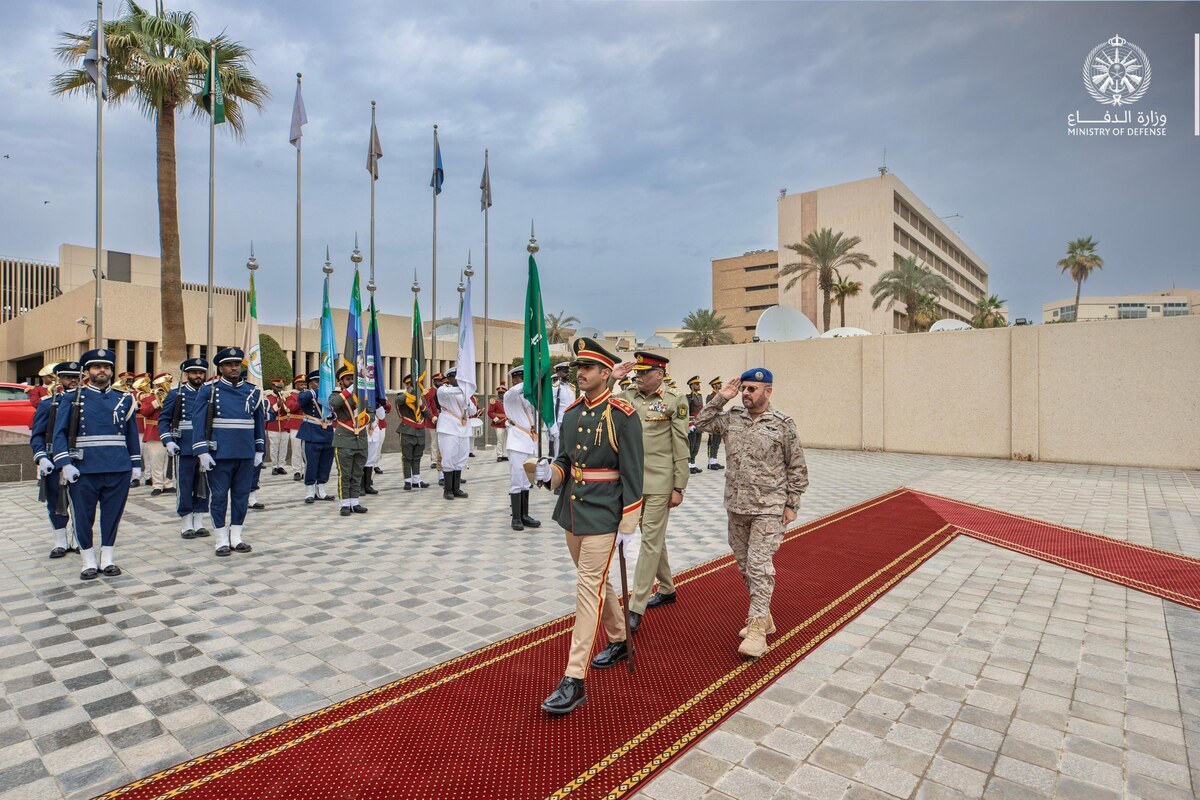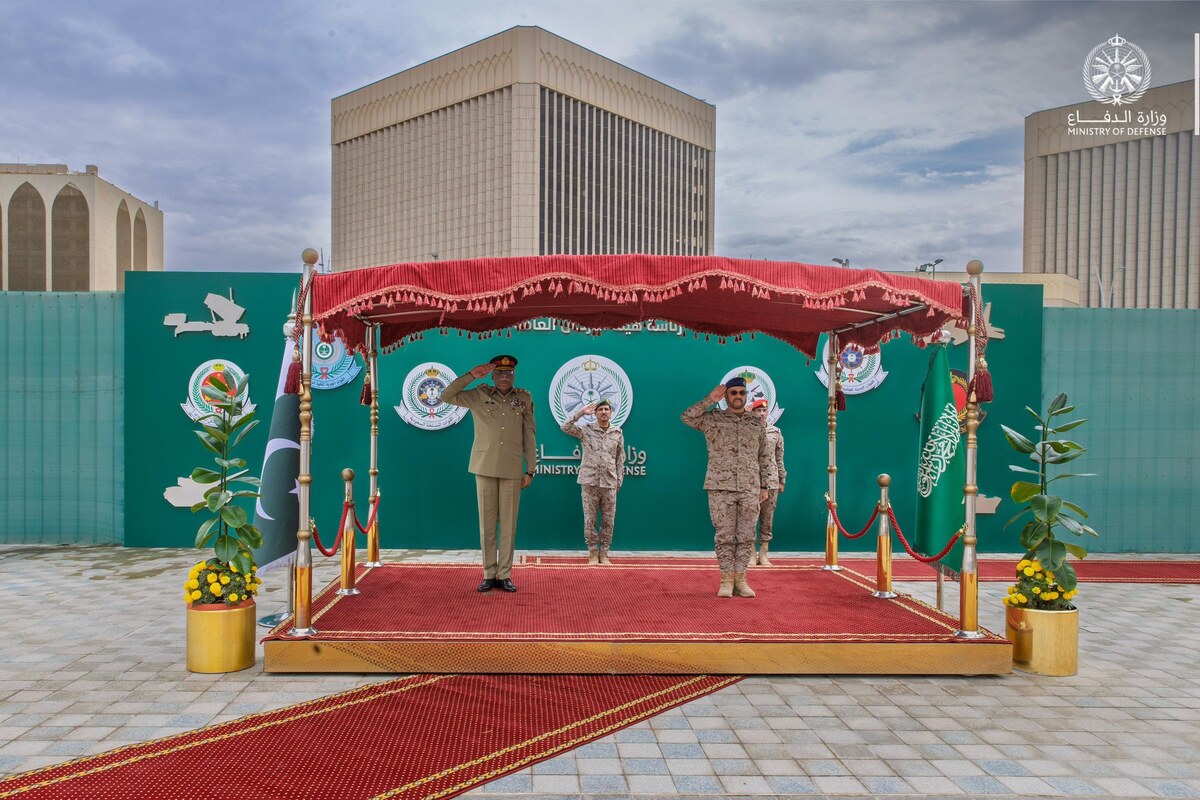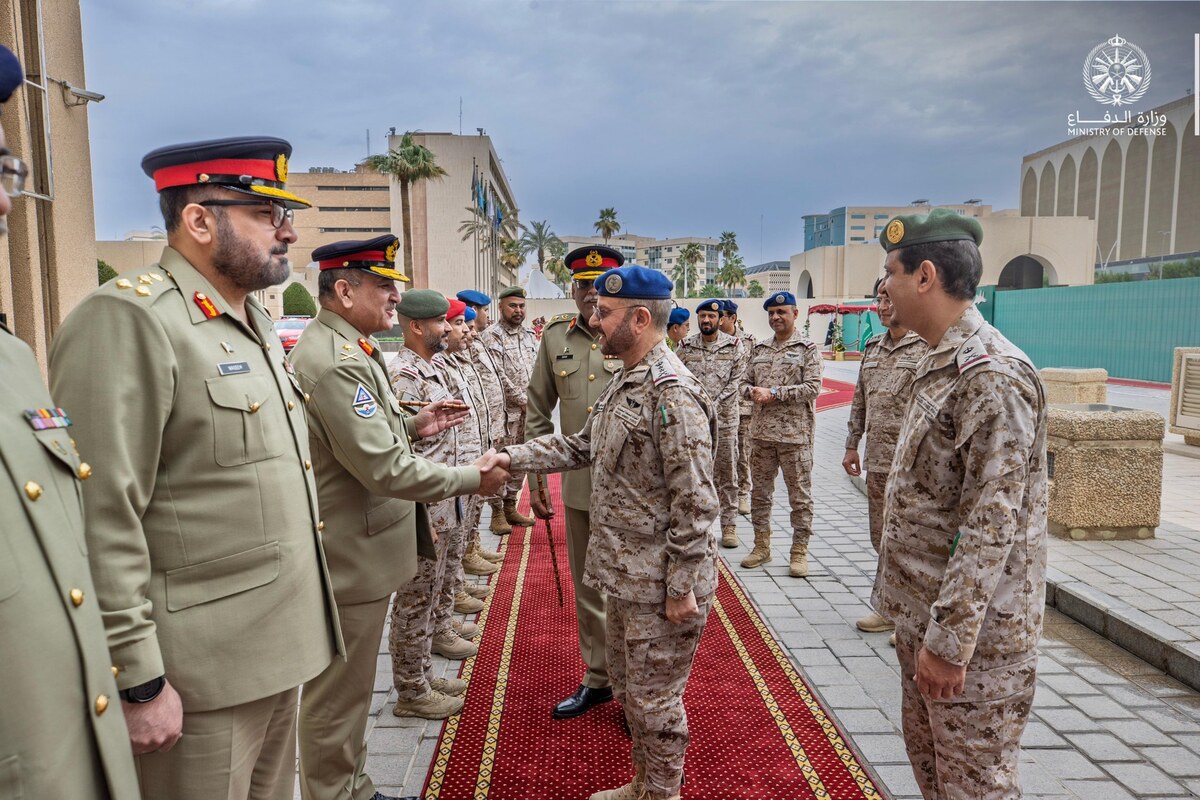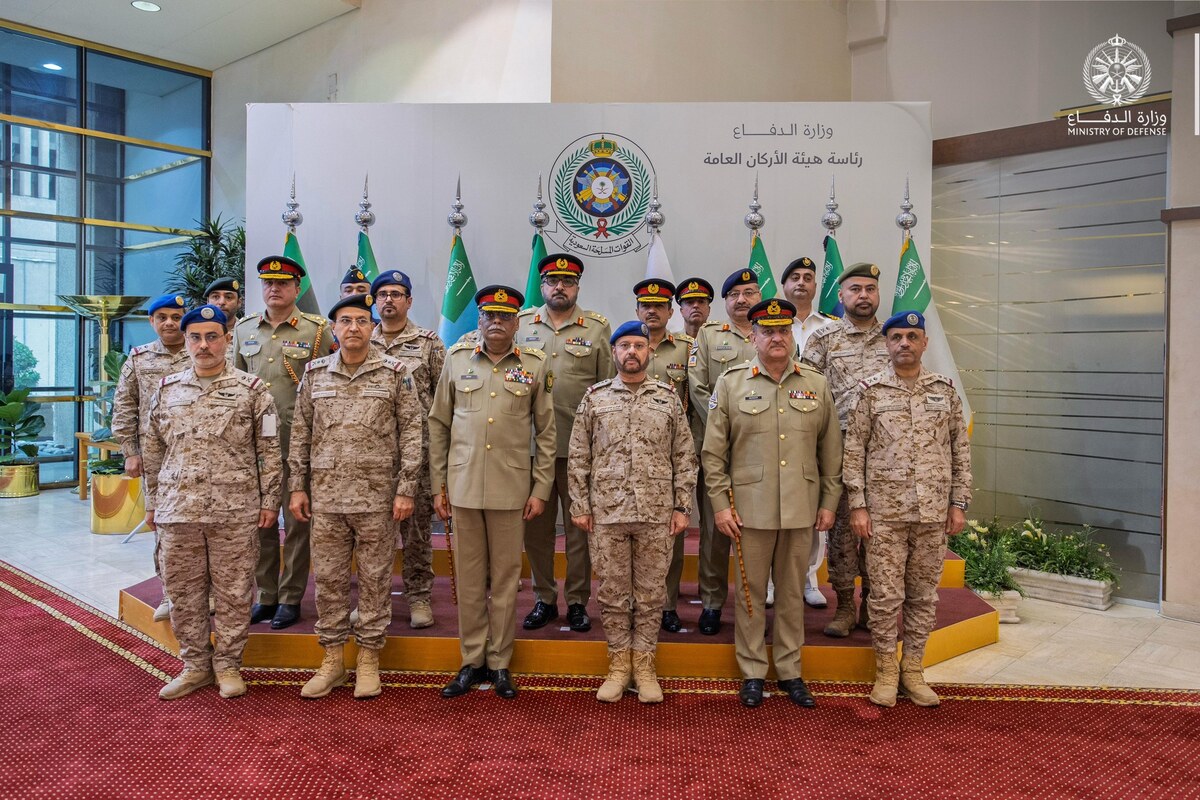KARACHI: Senior Pakistani and Saudi military officials have agreed to further consolidate bilateral defense and security cooperation during their meetings in the Kingdom, the Inter-Services Public Relations (ISPR) said in a statement on Saturday.
Pakistan’s Chairman Joint Chiefs of Staff Committee General Sahir Shamshad Mirza is currently visiting Saudi Arabia to attend the 8th round of the Pakistan-Saudi Joint Military Cooperation Committee (JMCC) meeting.
The Kingdom remains one of Pakistan’s key defense and security allies, with ties encompassing a range of activities, including counterterrorism collaboration.
“Both sides reviewed the ongoing cooperation between Armed Forces of Pakistan and Saudi Arabia, focusing on mutual exchange programs, training initiatives and other defense-related activities,” the ISPR said.

In this handout photo, released by the Saudi Ministry of Defense on February 14, 2025, Pakistan’s Chairman Joint Chiefs of Staff Committee General Sahir Shamshad Mirza reviews the Guard of Honor at the Armed Forces Headquarters in Riyadh, as he arrives to attend the 8th round of the Pakistan-Saudi Joint Military Cooperation Committee (JMCC) meeting. (Photo courtesy: Handout/MOD)
“The military leadership reaffirmed their commitment for further strengthening existing defense and security cooperation between the two brotherly countries,” it added.
During his visit, General Mirza held meetings with Major General Talal Bin Abdullah Al-Otaibi, Assistant Minister of Defense, and General Fayyadh bin Hamed Al-Ruwaili, Chief of General Staff of Saudi Arabia.

In this handout photo, released by the Saudi Ministry of Defense on February 14, 2025, Pakistan’s Chairman Joint Chiefs of Staff Committee General Sahir Shamshad Mirza (left) reviews the Guard of Honor at the Armed Forces Headquarters in Riyadh, as he arrives to attend the 8th round of the Pakistan-Saudi Joint Military Cooperation Committee (JMCC) meeting. (Photo courtesy: Handout/MOD)
Their discussions covered strategic and security issues, the evolving regional environment and bilateral defense collaboration.
The JMCC meeting, which Mirza and Al-Ruwaili co-chaired, serves as a key platform for defense dialogue and coordination between the two nations.

In this handout photo, released by the Saudi Ministry of Defense on February 14, 2025, Saudi military officials welcome Pakistan’s Chairman Joint Chiefs of Staff Committee General Sahir Shamshad Mirza at the Armed Forces Headquarters in Riyadh, as he arrives to attend the 8th round of the Pakistan-Saudi Joint Military Cooperation Committee (JMCC) meeting. (Photo courtesy: Handout/MOD)
The ISPR said Saudi military officials praised the professionalism of Pakistan’s armed forces and acknowledged their sacrifices in the fight against militancy.
Upon his arrival at the Armed Forces Headquarters in Saudi Arabia, General Mirza was given a Guard of Honor by a smartly turned-out military contingent, reflecting the strong defense ties between the two nations.

In this handout photo, released by the Saudi Ministry of Defense on February 14, 2025, Saudi and Pakistani military officials gesture for a group photograph following the 8th round of the Pakistan-Saudi Joint Military Cooperation Committee (JMCC) meeting at the Armed Forces Headquarters in Riyadh. (Photo courtesy: Handout/MOD)

















